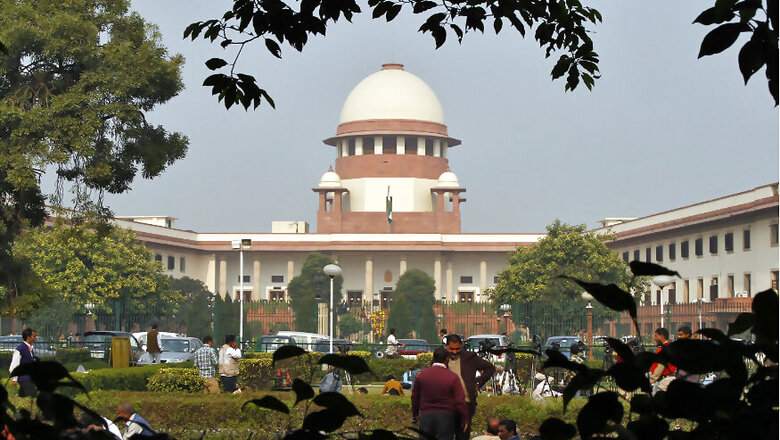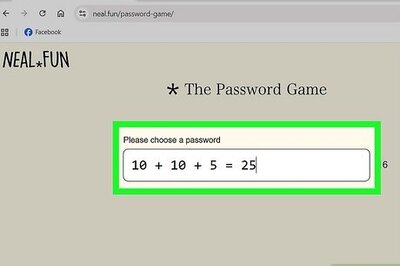
views
New Delhi: The Supreme Court on Wednesday commenced hearing to examine the constitutional validity of various aspects of a provision of the Citizenship Act 1955, including the cut-off date for awarding citizenship to Bangladeshi immigrants in Assam.
A five-judge bench headed by Justice Madan B Lokur said it would deal with 13 questions related to the constitutional validity of section 6A of the Act, which were referred to it for consideration by a two-judge bench in December 2014.
Section 6A of the Act relates to special provisions for citizenship of persons covered by the Assam Accord, which was a memorandum of settlement signed between representatives of the Centre and the leaders of Assam movement in August 1985.
The bench, also comprising Justices R K Agrawal, P C Pant, D Y Chandrachud and Ashok Bhushan, said that apart from these 13 questions, it might also deal with related issues raised by the parties if required.
The apex court asked the Centre and other concerned parties, including Assam government, to file their written submissions in the matter by May 1 and fixed the matter for hearing on May 8.
It said after going through the written submissions, it would decide on the dates when the matter would be heard in detail.
"All the parties will file their written submissions on or before May 1... With regard to the time that will be required for hearing, there seems to be some impression that the hearing will take considerable time," the bench said.
"We will consider it after going through the written submissions filed by the parties," it said.
In December 2014, a two-judge bench of the apex court had framed 13 questions for deliberation by a larger bench which included as to whether section 6A violates the Articles of the Constitution by diluting the political rights of citizens of Assam.
It had also framed a question about scope of fundamental right contained in Article 29(1), relating to the right to conserve a distinct language, script or culture, and also about the meaning of expressions 'culture' and 'conserve'.
The two-judge bench had formulated questions whether section 6A violates Article 14 (equality before law) and 21 (right to life) of the Constitution.
"Whether section 6 A violates the basic premise of the Constitution and the Citizenship Act in that it permits citizens who have allegedly not lost their citizenship of East Pakistan (now Bangladesh) to become deemed citizens of India, thereby conferring dual citizenship to such persons," it had said.
During the hearing today, senior advocate Shyam Divan, appearing for one of the petitioners, told the bench that the main issue relates to challenge to the vires of section 6A of the Act.
The bench was told that these 13 questions were framed by the two-judge bench after the parties had given their suggestions on the issue.
The apex court initially told the parties that it would start hearing the matter in summer vacation from May 11 and the arguments might be concluded by May 19.
The lawyers, however, said that arguments would take time after which the bench said it would go through the written submissions and would then decide on May 8 about the dates for hearing the matter.
The two-judge bench, which was hearing various petition arising out of its judgement on PILs on influx of illegal Bangladeshi migrants to Assam, had decided to keep monitoring the implementation of directions given by it earlier.
It had earlier passed a slew of directions, including an order to the Centre to complete the fencing work along the India-Bangladesh border within three months to check cross-border influx of illegal Bangladesh nationals into Assam and streamline the process to deport them back.
The apex court had also laid down a time-table for updating of the National Register of Citizens (NRC) in Assam so that the entire updated register is published by the end of January, 2016.
The apex court's December 2014 verdict had come on the pleas of Assam Sanmilita Mahasangha, Assam Public Works and All Assam Ahom Association filed in the aftermath of large- scale riots in 2012 and 2014 resulting in the death of a large number of persons.
In their writ petition, the petitioners have said the sovereignty and integrity of India is itself at stake as a massive influx of illegal migrants from a neighbouring country has affected the core constitutional value.

















Comments
0 comment